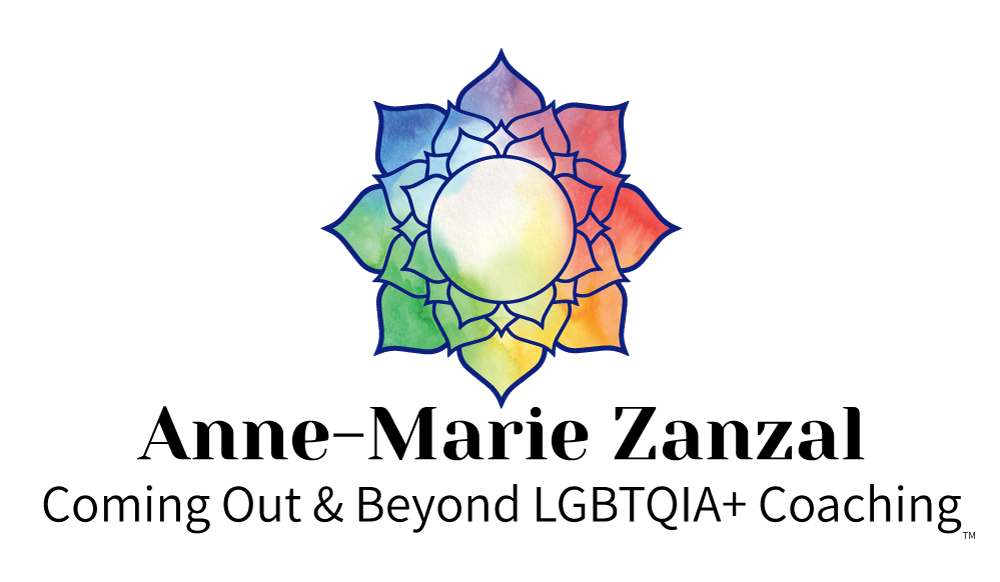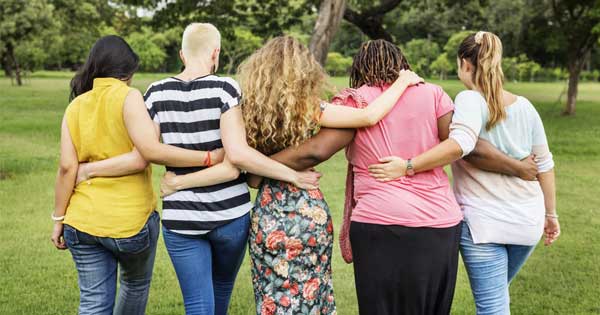Acknowledging our sexual orientation can be a long road for some of us. We dip our toe out of the closet and quickly withdraw it when this journey feels too difficult or scary to navigate. What I have learned in my years of individual and group coaching of women as they come out is finding community is key to easing the transition from living a straight life to living an authenticate one. We need to find our people, even if we are in a gay/lesbian relationship it is important to make friends inside the LGBTQIA+ community that outside is of our romantic relationship.
Find Social Media Support is a Place to Start
I attempted to come out over a ten year period and what I did the last time changed everything for me. I googled “later in life lesbian” and through some trial and error I found a secret Facebook mutual support group for women coming out later in life. It changed my life. All of sudden I was with a group of women who understood this journey and I heard threads of my story again and again. I no longer felt so alone and so different.
It gave me enormous comfort that other women were navigating some of the same things I struggled to talk about to anyone. We posted about our spouses, children, divorces, navigating the lesbian community, work, coming out and this group became my cheerleaders on this journey. This group gave me hope and the belief I could come out at fifty years old. A secret FB support group cannot be found by searching and only another member can help you join.
There are also closed groups on Facebook that can be found publicly by using search terms search as “late in life” “later in life” “lesbian” or really any term that comes to mind. Only members can see posts and who the other people are in the group. A public group means anyone can see anything and others will be able to see that you are a member of the group.
I have a free Facebook group you can join if you are interested in connecting with other women in their coming out later in life journey. Add me as a friend here and let me know you want to join and I can get you added.
Although not a support group, Instagram and Tic-Tok is a great way to follow certain hashtags or people to help us see an LGBTQIA+ culture that many of us are not familiar. I had a young client (28) who was in the midst of a divorce, she followed #lesbiancouples, #cutelesbians, and #lesbianfamily to help her witness something she so wanted for herself. It helped her moved forward in her journey and made her realize that it was a possibility to both come out and have the family life she wanted. What hashtags or people could you follow?
In-Person Support Groups
The next step can be tricky now that we are in a pandemic. As I continued in my journey I realized that I needed more than online friends. Initially, I met with other local people from the secret support group and it was great to meet people that I had only known by their written posts.
Sometimes online support groups are very organized and as a “newbie” it is easy to find people from your area. Sometimes we have to be the ones to ask “hey does anyone want to meet in person?” That can be scary for some of us, but don’t take it personally if people don’t respond, it truly depends on the atmosphere, purpose, and that day’s algorithms of the group. Sometimes we need to ask more than once or look elsewhere.
Local LGBTQIA+ centers can also be a great resource for local support. I know many of us are so nervous to even contact a center, because on some level we have to admit that we are a member of the LGBTQIA+ family. What is helpful is to think of this in terms of exploration in terms of “exploring my sexual identity.” Many centers have support groups and great resources as well.
Meet-ups (https://www.meetup.com) are also another way to find our people. There are LGBTQIA+ groups with specific interests (hiking, kayaking, couples, etc). When I first started to explore these groups I used an alternative email address because I still was exploring my sexual orientation. Coming out is a process and there are various stages we go through, but I knew I needed community before I was truly out.
Although most people in the gay community can be very welcoming and accepting, sometimes people who have been out for a longer period can be dismissive or negating to a “newbie” especially if they are older or married to the opposite gender. Keep this in mind that nobody can determine your sexual orientation except you. NOBODY!!!!!
Individual and Group Coming Out Coaching or Counseling
There are both therapists and coaches who provide individual and group support to individuals. Almost all therapist and coaches have switched to an online model. When seeking this type of support make sure the caregiver is either a member of the LGBTQIA+ community or a very strong ally.
Interviewing is key before you start to work with them. If you find any hint of uncomfortableness on their part or homophobia do not work with them. If you consider yourself “later” ask them how many people they have worked with coming out later in life. (Later in life is a subjective term and people as young as early twenties can consider themself “late.”)
Even queer therapists and coaches can miss the significance of the needs of the later in life community. If you are seeking couples counseling with your opposite gender spouse – the therapist or coach needs a deep grounding in human sexuality and the struggles of mixed-orientation marriages. Also, you can “break up” with your therapist and coach if they are not working for your needs, it is not our responsibility to take care of them. Remember it is a professional relationship.
Online mutual support groups are another great way to find the emotional support we that need and also instant community. Much like the FB groups it is helpful to have a group of cheerleaders by your side as you navigate individual milestones on this journey. Speaking with the facilitator before you start is key to make sure she/he and the group is a good fit for you and your needs.
Finding all the support that is available to us is crucial in the coming out journey. Don’t go this alone, you don’t need to, and you will be so happy when you find your people. No matter where you are in your journey of discovery, from questioning to wanting to live completely as an openly queer member of society, there are many people in the exact same place. You are not alone. Seriously.
Anne-Marie Zanzal, M.Div is a coach and provides emotional and spiritual support for those who are coming out later in life to the LGBTQIA+ community. She provides one on one coaching and online support groups. She came out at fifty after marriage to a man for twenty-five years and four children. You can find her and the work she does at www.annemariezanzal.com. You also may reach her at amzanzal@gmail.com if you have any questions.



Recent Comments